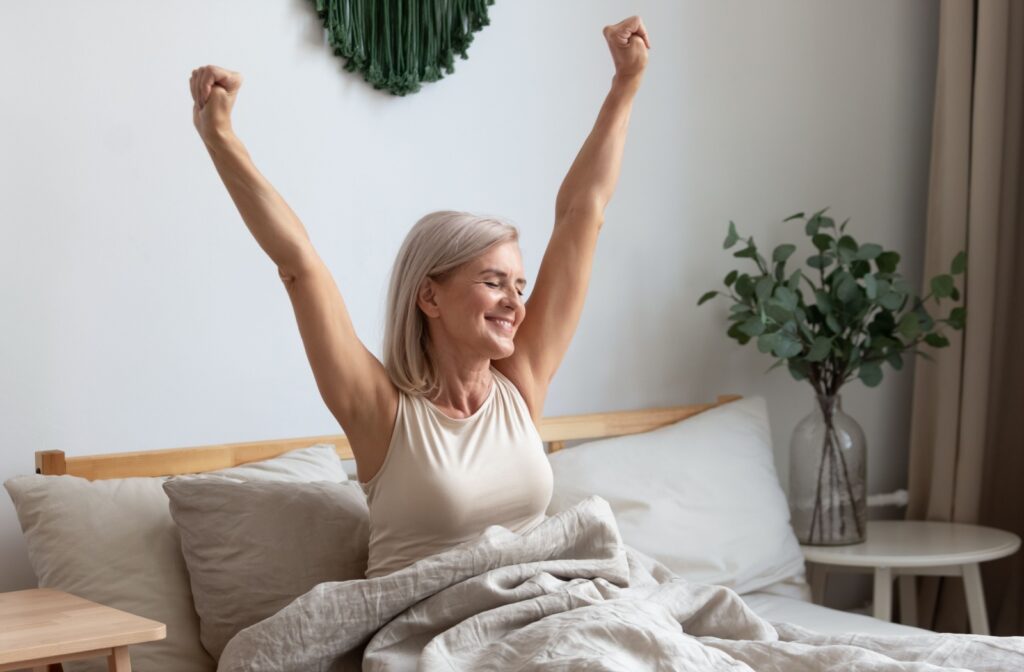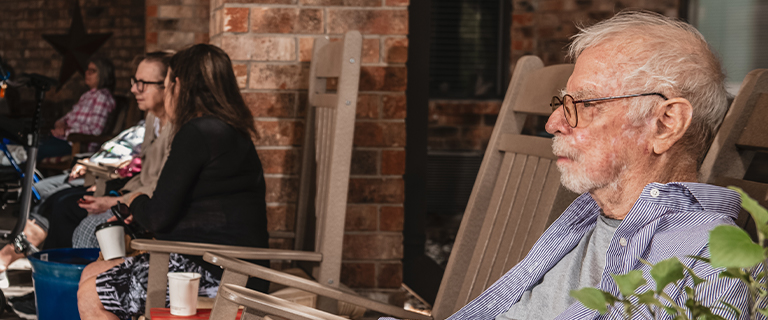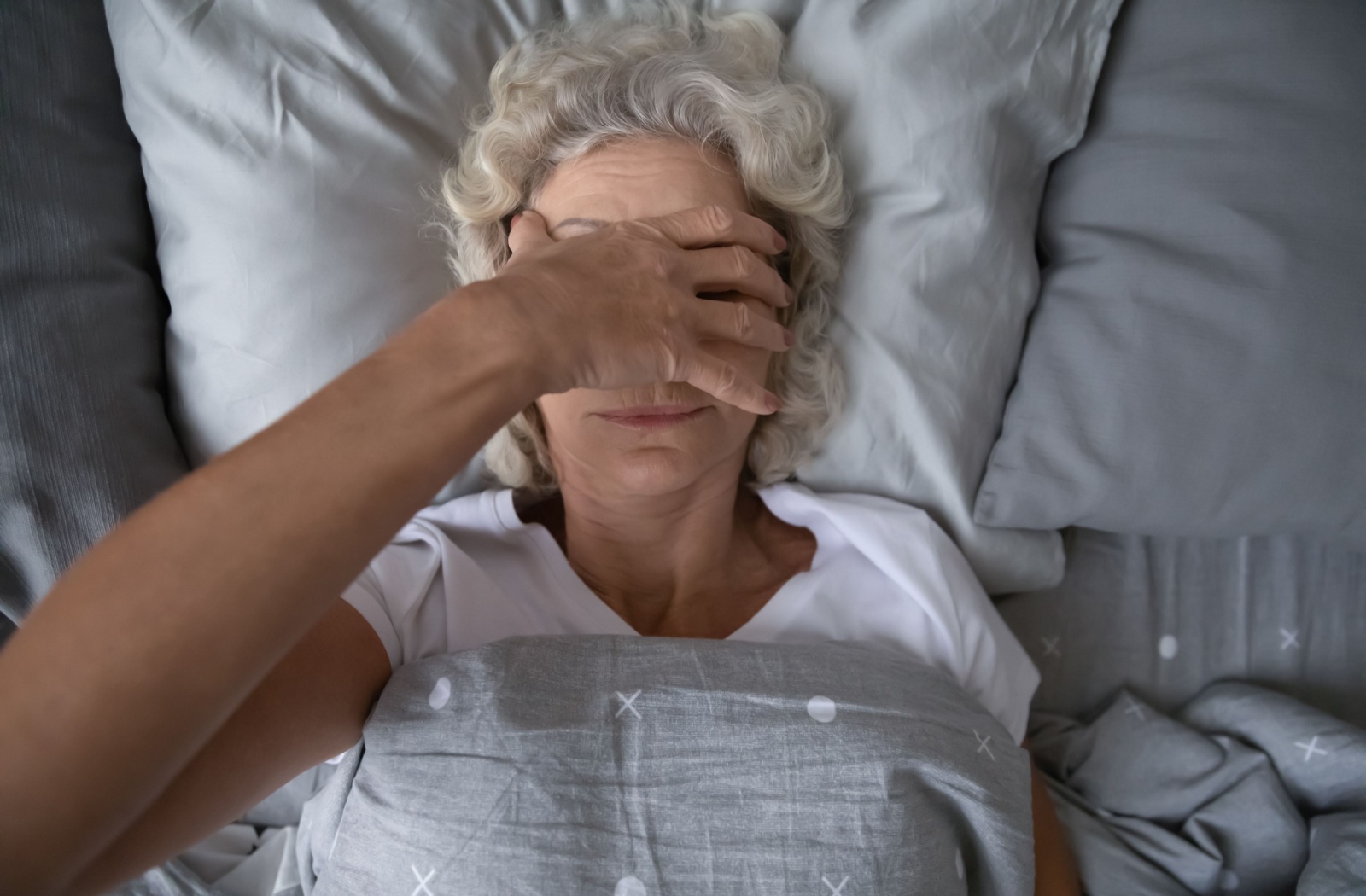Sleep is an essential part of life, and it’s key to staying independent. However, for seniors, getting a good night’s rest can sometimes be a challenge. Changes in sleep quality are common with age, and if your loved one is grappling with restless nights, you may wonder what’s happening—and how you can help.
It’s normal for seniors to experience some trouble sleeping as they age. Sleep difficulties may stem from multiple causes, and they’re often a sign of an underlying issue, from diet and lifestyle habits to subtler medical conditions.
Common Causes of Sleep Problems in Seniors
Several factors work together to make sleep more challenging for seniors. While age-related changes in sleep patterns are natural, other lifestyle and health influences can also contribute.
For some seniors, physical health conditions or pain regularly disrupt rest. Psychological challenges, like anxiety or stress, can also prevent deep, restorative sleep. Environmental factors, such as noise or temperature, also affect sleep quality.
How Health Conditions Affect Sleep
Chronic health concerns are common in senior years. Unfortunately, these can take a toll on sleep quality. Understanding what’s affecting your loved one is the first step towards helping.
Some common contributing conditions include:
On top of this, as we age, the body produces less melatonin, the natural hormone that helps us fall asleep and stay asleep. Even alongside healthy habits, lower melatonin levels can make sleep more difficult for older adults.
How Medications Affect Sleep
For many seniors, maintaining good health means using medications. However, some medications come with side effects that negatively impact sleep. Steroids, antidepressants, and beta-blockers are all common medications known to affect sleep.
If your loved one is experiencing sleeplessness, it’s worth examining their medication list. A discussion with their doctor may help identify medications that trigger insomnia. This makes it much easier to make potential adjustments.
Age-Related Changes in Sleep Patterns
Seniors often notice changes in how they sleep—even without underlying medical conditions. This is typically because of a shift in the balance between deep sleep and light sleep.
Older adults tend to experience shorter periods of restorative, deep sleep and spend more time in lighter sleep stages. These changes can lead to frequent nighttime awakenings.
Environmental Factors Disrupting Sleep
Sometimes, improving sleep comes down to the environment. Seniors may find themselves more sensitive to their surroundings as they age. Noise, temperature, or even too much light can all disrupt their ability to fall or stay asleep.
Even loved ones or pets sharing the bed could accidentally interrupt sleep, adding to the struggle. A careful review of the sleep environment might reveal changes that help your loved one rest easier.
Tips for Improving Your Loved One’s Sleep Quality
If you’re looking to help a loved one with their sleep, it all starts with simple, meaningful changes.
Start by helping them create a regular, calming bedtime routine. Gentle cues, such as reading or listening to quiet music, can signal it’s time to relax. Encourage your loved one to try going to sleep at the same time every night, as this helps the body adjust to its new routine.
It’s also helpful to limit screen time before bedtime. Electronic devices emit blue light, which can interfere with melatonin production and disrupt natural sleep rhythms.

The Role of Exercise & Physical Activity
Regular physical activity is a powerful way to boost sleep quality. Daily movement helps regulate the body’s internal clock and can make falling asleep easier.
Seniors don’t need to overdo it. Light, consistent exercise works wonders. However, it’s best to stick to mornings or afternoons to avoid overstimulation close to bedtime.
Cognitive Behavioral Therapy
Cognitive Behavioral Therapy for Insomnia (CBT-I) is a useful tool for seniors who deal with ongoing sleep difficulties. This form of therapy is structured to help identify and adjust behaviors or thoughts that might interfere with sleep.
CBT-I focuses on practical changes and new habits, offering an effective solution for seniors grappling with persistent insomnia.
Creating a Comfortable Sleep Environment
Sometimes, all it takes is making a bedroom feel cozier to encourage better sleep. A cool, dark, and quiet space is an ideal setting. It helps to:
- Invest in blackout curtains to block out light.
- Use a white noise machine to reduce disruptive sounds.
- Maintain a comfortable mattress and pillows.
- Set the thermostat to a cooler temperature for optimal comfort.
- Remove electronic devices to minimize distractions.
Small adjustments like these can turn a bedroom into a calming retreat that promotes better rest.
The Importance of Addressing Sleep Problems
Sleep is vital to seniors’ overall well-being. Fortunately, small changes—like adjusting routines, consulting healthcare providers, and modifying their sleep environment—can make a big difference for your loved one’s sleep patterns.
At Parsons House Austin, we know how precious restful nights are for seniors. From personalized care to community-based activities, we prioritize helping residents maintain healthy rhythms that promote better sleep. Schedule a tour with our community today to see how we can help!



